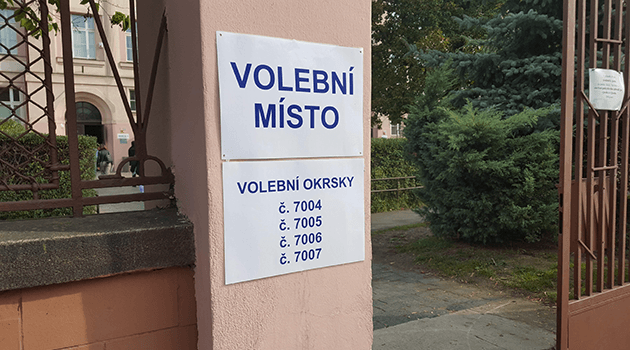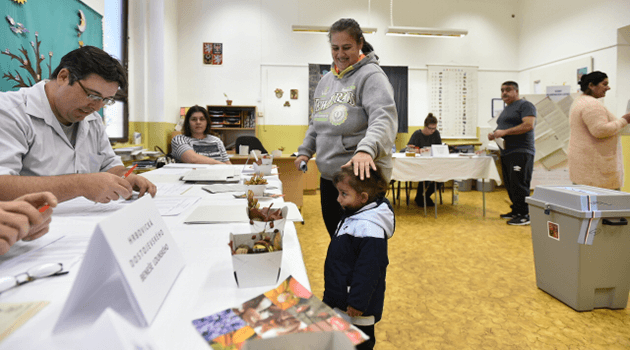Czech Police receive complaints about elections, not yet clear whether vote-buying happened

Daniel Vítek, a Czech Police spokesperson, told the Czech News Agency on 6 October that police in the Ústecký Region have received several reports of suspected attempts to influence last weekend’s elections and are investigating them all. He would not specify what detectives were going to do further.
Police investigators are said to have directly responded to reports from polling places in Bílina (Teplice district) and Ústí nad Labem on Saturday. “We immediately checked out all reports and we will follow up on them,” Vítek said.
In the Krásné Březno quarter of Ústí nad Labem, a case was reported to police of approximately 30 voters arriving all at the same time, people who apparently usually do not turn out to vote. They were allegedly brought by car to the polls.
A suspiciously high number of people also came all at once on Friday to a polling place in Bílina and, according to electoral commission members, they apparently did not know how to cast their ballots the right way. In the Moldava municipality of the Krušné hory area, many people suddenly applied for permanent residence during the last week before the elections.
For the time being it is not clear whether these are cases of vote-buying or whether this was part of increased Romani turnout responding to the “ME DŽAV! A so tu?” campaign by the RomanoNet organization to get out the Romani vote. “I am from Krásňák [Krásné Březno] and I can confirm that nobody gave or will give me anything in exchange for my vote, is it not possible just to go vote this way?” a voter angrily wrote to the Facebook profile of the ROMEA organization in response to a photograph published online of Romani people suspected of having been paid to vote in the municipality.
Janusz Konieczny, who has long been involved with monitoring vote-buying, posted to Facebook pointing out that ballots were never received by registered voters in some localities inhabited by Romani people. “In excluded localities in Ostrava, Brno, or the Ústecký Region, ballots were not delivered on a massive scale – I have a ton of testimonies to that effect. That is to say, they may have been delivered to individual mailboxes, but then it seems somebody probably accumulated them all, which is a typical preliminary to vote-buying. Of course, it is necessary to add that many honest Romani people, on the other hand, did their best to reach out to the Romani community and encourage them to go to the polls of their own accord – without agreeing to sell their vote. If a group of Romani voters goes to the polls and is not exactly oriented in the system for casting a ballot, that decidedly does not mean vote-buying is behind it,” he said.
Police are also investigating the content of electoral posters and slogans in Most and Ústí nad Labem as well as reports from people who allegedly had no idea that they were going to be on a candidate list for one of the parties in Ústí nad Labem. Police in Chomutov have already charged a 26-year-old man from Teplice for bribing people to register their permanent residency in a particular municipality in the Teplice area so they could vote there.
The particular village at issue there is called Hora Svatého Šebestiána. Should he be convicted, the man faces between six and three years in prison.
